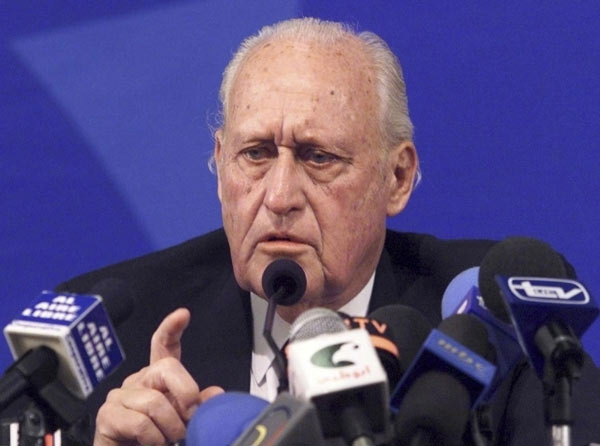IOC confirms Havelange resignation
Updated: 2011-12-06 12:41
(Agencies)
|
|||||||||
 |
|
FIFA President Joao Havelange speaks to journalists during a news conference in Paris in this June 6, 1998 file photo. [Photo/Agencies] |
LAUSANNE - Former FIFA president Joao Havelange has resigned from the International Olympic Committee (IOC) days before an ethics hearing into his conduct, the IOC confirmed on Monday.
"The IOC confirms that it has received the resignation letter from Mr Joao Havelange as IOC member," said the organisation in a statement.
The head of soccer's world governing body from 1974-98, the 95-year-old Brazilian was under an IOC investigation for his links with FIFA's former marketing agency International Sport and Leisure (ISL).
"FIFA has taken note of Joao Havelange's resignation as IOC Member and the fact that the IOC has closed the case accordingly," said FIFA in an email sent to Reuters.
"Regarding FIFA matters, it is important to note that Joao Havelange was appointed Honorary President by the FIFA Congress on June 8, 1998," it added.
"FIFA cannot speculate on any decisions made by Mr Havelange.
The BBC said the IOC case to deem whether or not Havelange had violated IOC ethics rules was likely to be dropped following his resignation.
ISL went bankrupt in 2001 with debts of around $300 million. A BBC Panorama television programme alleged in 2010 that Havelange had accepted money from ISL for granting lucrative World Cup contracts.
Havelange, who joined the IOC in 1963, still enjoys considerable respect within the organisation.
He was part of Rio de Janeiro's successful bid to host the 2016 Olympics, urging his fellow IOC members in an emotional final address before the vote to come and celebrate his 100th birthday in Brazil.
Havelange is one of three IOC members, including world athletics boss Lamine Diack and Issa Hayatou of Cameroon, to have been linked with the ISL affair.
The IOC's executive board is due to meet later this week to discuss the ethics commission's findings into the three members and announce sanctions if deemed necessary. These could range from a temporary suspension to expulsion from the Olympic body.
The last IOC member to resign instead of facing expulsion was one-time presidential candidate Kim Un-yong, who stepped down in 2005.
The IOC has sought to crack down on corruption following the 2002 Salt Lake City Olympics bribery scandal that led to four members being expelled and several others sanctioned.











